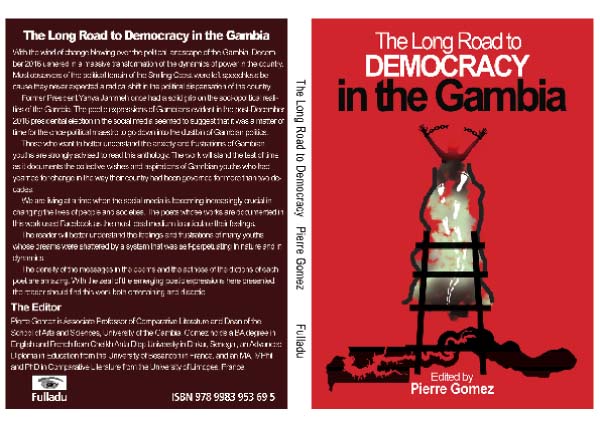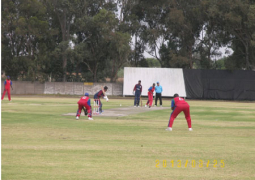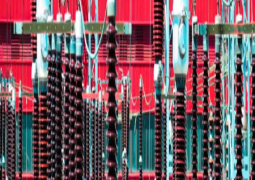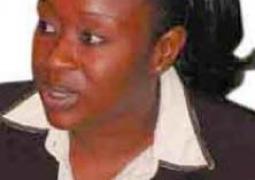
The
Long Road to Democracy in The Gambia edited by Prof Pierre Gomez
It
is a great pleasure for me, and indeed an honour to review this book, ‘The Long
Road to Democracy in the Gambia’ by one of Gambia’s most accomplished
academics, Professor Pierre Gomez. The key summary of the review I am going to
make is to simply say read this book. If you haven’t read it yet, you haven’t
read any book on contemporary Gambian society, on Gambian poetry and on the
collective sentiments of a nation in a time of great challenge. I think the
main architect of this chapter of our history, former President Jammeh, himself
has to get a copy of this book. He must
read it to comprehend the collective trauma, anxiety, anger and fear he
subjected a whole nation.
Quite
honestly, the powerful poems in the book made me to understand how the majority
of Gambians felt and still feel about their country. I had to reflect long into
the night trying to put all these powerful messages into a proper context. I assure you that when you buy a copy of the
book (available at Timbooktoo) and get the chance to read it, your perspectives
about how Gambians felt about themselves, their country and their thoughts on
the political impasse that held the whole nation in suspense will be given a
new dimension.
By
way of introduction, let me say that this is the book that summarises in a few
pages the collective feelings of Gambians at a time when there was great
uncertainty about the nation’s political future. And anyone interested in
knowing how Gambians felt when their country and democracy was raped and
violated with total disregard by a group of criminals has to read this book
urgently. Although the book is a collection of poems written by Gambians using
social media during the political impasse, Professor Gomez has done a great job
in putting together these poems in his quest to depict the socio-political
situation of the country.
Professor
Gomez ingeniously divided the book into four stages. Each stage representing a
timeline in the run up to the December 1 presidential elections, the brief
interlude that ushered in a period of hope for our democracy between 2 and 9
December, the penultimate phase full of suspense and uncertainty also dubbed as
the political impasse and the final phase outlining the period between the
swearing in of President Barrow at the Gambian embassy in Dakar, the intervention
of the ECOMIG forces and the subsequent departure in exile of former President
Yahya Jammeh.
The
poems published in the first stage of the timeline carry themes that depict a
challenge of decision making at the polls, attempts to incite a sense of craving
and lamentations for change as in David Kujabi’s ‘Our Land Use to Smile’,
Famara Fofona’s ‘A Night of Anguish’ and Musa Bah’s ‘Culture of Sycophancy’. In particular, Bah’s ‘Culture of Sycophancy’
is one of the most powerful poems that has ever depicted a country’s political
situation and how politicians abuse the power given to them by the people to
serve their own selfish interest.
The Culture of Sycophancy.
The
leaders live lifestyle, fancy
Yet
we all naively call it democracy
We
condone the enervating bureaucracy
They
are drunken with powers ecstasy
This
misnomer causes their redundancy
I
call this bane the culture of sycophancy
The
kowtowing behind them is pure lunacy
We
have institutionalised praising incumbency. (p.24)
Bah’s
attitude towards sycophancy, which he considers a bane, is that of contempt. He
puts part of the blame for this bane of mal-governance and dysfunctional
leadership on sycophancy amongst the citizenry. Bah fundamentally argues that
when a people turn a blind eye to misrule or at worse praise it, they invite
for themselves calamity in the hands of dictators. The key contention is that a
people create the monstrous dictators themselves thereby contributing to their
own subjugation by the monster they created. This poem reminds me of a
conversation in William Shakespeare’s work, Julius Caesar, between Cassius and
his friend Brutus, where the former tried to persuade the latter that in the
best interests of the public, Julius Caesar must be stopped from becoming
monarch of Rome. He told him, “The fault, dear Brutus, is not in our stars, but
in ourselves, that we are underlings.”
The
second phase of the timeline in this anthology of poems depicts the period of
strong determination for change amongst Gambians. This period started with the announcement of
the election results by the IEC indicating that the incumbent had lost the
elections to the coalition. As Professor
Gomez described, a period of intense ecstasy followed this period as Gambians
began to express themselves freely once again. This new found freedom to speak
their minds reached climax when the incumbent called to concede defeat. One of the poems that capture the mood around
this period was written by Marabi Hydara. The name of the poem later became the
slogan of the countries new found freedom.
The
Gambia has decided
The
Gambia has suffered far too long
Her
people have been victimised all along
From
the ills of her leadership
Her
body is covered with the scar of dictatorship
She
endured all sorts of inhumane censorship
Her
sons and daughters are force to leave their homes
As
they embark on suicidal journeys
Crossing
the desert and the Dead Sea to Lampedusa (P.48)
In
these lines, Marabi succinctly describes the Gambia’s dysfunctional governance
system under the previous government the consequence of which saw the majority
of the country’s youths flee their homeland in search of freedom and greener
pastures and to escape the clutches of the dictatorial machinery. Some arrived
safely, but the majority perished on the high seas. As a result, Marabi
enunciates the fact that the Gambia has decided to break free itself from the
clutches of dictatorship under former President Jammeh who had turned his
citizens into slaves in their own country, punished people who dissented and brutally
supressed all forms of opposition. These lines in page 48 well capture this
unfortunate circumstance:
Folks
are celebrated by the colour of their political parties
Criticism
unwelcomed and meted with incarceration
Prisons
filled with innocent men and women
All
are forced to praise-sing one man
As
he became the godfather of all men
His
pictures treasured and his words became law
Citizens
enslaved and turned to farmers
Not
on their own farms, but to Kanilai family farms
Produce
of which is never accounted for
Projects
became steeped and self-centred
The
lines above echo similar sentiments by journalist Blain Harden in his
description of the classic African president. In his book ‘Dispatches from a
Fragile Continent’, he has this to say:
His
face is on the money
His
photograph hangs in every office in the realm
His
ministers wear gold pins with tiny photographs of him on the lapels of their
tailored pinstriped suits
He
names streets, football stadiums, hospitals and universities after himself
He
carries a silver inlaid ivory mace or an ornately carved walking stick
He
insist on being called doctor, conqueror, teacher, the big elephant or the
number one peasant or the wise old man or the most popular leader in the world
His
every pronouncement is reported on the front page
He
shuffles his ministers without warning paralysing policy decisions as he
undercuts pretenders to his throne
He
scape-goats minorities to shore up popular support
He
rigs elections
He
emasculates the courts
He
cows the press
He
stifles academia
He
goes to church or mosque.
At
the climax of the political impasse, which saw a deadlock between the key
political stake holders, a transition committee was to be set to facilitate the
smooth transfer of power. However, this
process was undermined when exactly a week after conceding defeat, former
President Jammeh announced on national TV that he rejected the election results
in their totality due to some anomalies detected after some thorough
investigations. This U-turn by Jammeh engendered outcry and condemnation both
within and outside the country amongst Gambians and non-Gambians. But
unfortunately for Jammeh, Gambians have already tasted freedom after 22 years.
The celebrations in the streets of Banjul and across the country on December 2,
attested to this. And Gambians had one message for Jammeh… we are not turning
back and we will not be intimated by your threats.
Consequently,
in a bid usurp the voice of the people, Jammeh used different mechanisms to
unlawfully hold on to the presidency. First he unsuccessfully filed and
election petition at the Supreme Court to nullify the election results. This
move subjected Jammeh to mockery and ridicule as some of his blind followers
gathered in front of the dysfunctional supreme court to hear the case. This
scenario inspired David Kujabi’s ‘Game of Thrones’, Musa Bah’s ‘The Overlords’
and Marabi Hydara’s ‘Mr Dramatists’. All these poems depict the various themes
that summed up the situation at the time. For instance, in Kujabi’s ‘Game of
Clowns’, he draws our attention to the APRC supporters who continued to
disgrace themselves by refusing to accept the will of Gambians either as a
result of egocentrism or otherwise. These were captured in the following lines
in page 76:
We’ve
heard about game of thrones
But
here comes the game of clowns
The
cast is a misguided group
Living
in green utopia
Their
ideals if any at all are myopic and self centered
They
are like the dancer who is still on the dance floor long after the music had
stopped playing
Seeking
relevance from a disinterested audience.
This
cynicism portrayed by Kujabi in the above lines continues in Bah’s ‘The
Overlord’:
The
streets they arrogantly roam
Proudly
pretending to be from Rome
Initially
you could count each bone
Now
so fat they have to hide in a robe
They
have no time for the masses
To
address them they hide under glasses
No
respect for mosques or churches
Only
interested in what fame fetches. (p.38)
Following
on the same theme of self-ridicule, Marabi Hydara describes former President
Jammeh’s rollercoaster behaviour during the impasse likening it to episodes in
a drama where Jammeh is the sole protagonist. First he accepted the results,
then sent a petition to the court, then deployed the army to the IEC and then
tried to import judges from the sub-region.
First
you gave a concession speech
Accepting
the inevitable change
Later
you fortified strategic locations
With
armed men and women
Then
denying the results in toto
Saying
you have been cheated and not defeated
Saying
your decision is final
And
until we return to the polls
You
will not step down. (p.52)
The
poet did not stop at how Jammeh was behaving, but also went further to stress
how Gambians reacted to the unfolding folly.
They had decided with their marbles and would not want to have that
stubborn ink on their fingers again. The sternness in the poets tone and the
diction used in the stanza that follows prove the poets maturity in being able
to hammer home his ideas succinctly without compromising his literary position
as highlighted in his poem ‘Mr. Dramatist’.
Mr
Dramatist
Elections
again, no go area
Gambia
has decided
She
is not voting again
She
is not spending her meagre resources in vain
Swallow
your pride and move on
For
you were not born president
Nor
shall you die president
Go
and live the live you sowed
Greed
is fatal and stubbornness leads to ruin
Accept
the truth and don’t be a coward. (p.52)
The
4th and final stage of this whole political saga on the timeline covers the
brief period between the swearing in of President Adama Barrow at the Gambian
embassy in Dakar, the intervention of the ECOMIG forces and the departure into
exile of former president Jammeh. This
was the climax of the impasse and it was filled with suspense. It ushered in a
defiance that was manifested in the poetry scene as captured by Abdoulie
Jallow’s ‘What is This’.
The
whole system corrupt
The
volcano about to erupt
The
prices up and people angry
But
some are just power hungry
We
still reread the same page
And
claim to be off the Stone Age
Some
just love to be on stage
Sending
the rest of us rage
I
write this with heavy heart
Such
rage beyond just sad
This
is no longer just mad. (p.71)
In
the same vein, in ‘Season Finale’ Marabi Hydara again expressed his contempt
towards outgoing President Jammeh whose key allies had already started telling
him that ‘so far we can accompany you in your madness…but not further’.
Your
ills can’t get you immunity
For
you lived a life filled with animosity
And
today you are ostracised by thy own society
Your
loyalists have forsaken you due to thy atrocity
Leave!
Leave! Leave! Before you see our ferocity
For
we no longer want to see thy face stained in monstrosity.
Peace!
(p.72).
Professor
Gomez praised the poets who contributed to this anthology. Even though most of
them had not before now taken up poetry as a career, he finds their maturity in
style in which their poems are composed amazing. The devices and technics used
by the poets to put their feelings about the political impasse reflect maturity
and dexterity. In essence, through a collection of poems, what Professor Gomez
has done is to provide a narrative of the general mood among Gambians during
the short journey of our history in a very long road. The ‘Long Road to
Democracy in the Gambia’ proves pivotal in determining the role played by the
Gambian literati and social media during this great nation’s historic moment.
The poems also make apparent the quality of talent we have in the Gambia as
demonstrated by the poets. Hence I conclude by congratulating Professor Gomez
and the poets for this brilliant piece of work.




